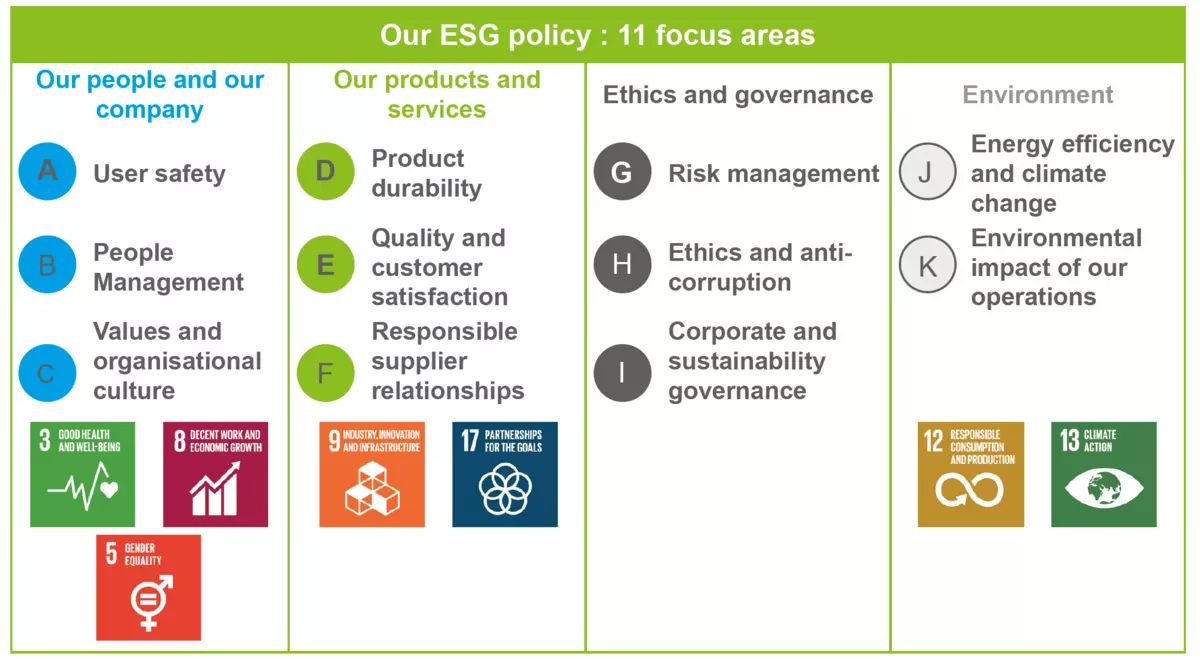12 June – In today’s rapidly changing business environment, Environmental, Social, and Governance (ESG) policies are no longer a luxury but a necessity for companies aiming for long-term success and sustainability. As consumers, investors, and regulatory bodies increasingly demand responsible business practices, businesses that embrace robust ESG policies are better positioned to mitigate risks, attract capital, and maintain a positive reputation. These policies are central to improving corporate governance, ensuring transparency, and promoting sustainable development while generating profits.
Integrating ESG into Corporate Strategy
Integrating ESG factors into a company’s strategic decision-making process is critical for both risk management and growth. Businesses that align their operations with environmental sustainability, social responsibility, and sound governance practices not only adhere to regulations but also capitalize on new opportunities. An ESG framework supports companies in adopting green technologies, enhancing labor practices, and fostering transparency in corporate leadership. This holistic approach helps in building long-term value while addressing the concerns of key stakeholders, including employees, customers, investors, and the broader community.
Environmental Sustainability
Environmental sustainability is perhaps the most pressing concern in the ESG sphere. With the growing global focus on climate change and resource depletion, companies are increasingly expected to minimize their environmental impact. By adopting energy-efficient practices, reducing carbon footprints, managing waste, and using renewable resources, businesses can mitigate their environmental impact while demonstrating responsibility. Furthermore, governments worldwide are enforcing stricter environmental regulations, and companies that proactively incorporate sustainability into their business models will not only comply with these regulations but also avoid penalties and enhance their market competitiveness. Businesses that invest in green technologies and sustainable practices are more likely to attract investors who prioritize environmental conservation, improving their long-term financial stability.
Social Responsibility
The social aspect of ESG focuses on a company’s impact on its stakeholders, including employees, customers, and communities. Social responsibility in business includes ethical labor practices, community engagement, customer satisfaction, and diversity and inclusion. Companies that invest in employee welfare, provide safe working conditions, and promote equal opportunities contribute to building a positive corporate culture. Additionally, businesses that demonstrate a commitment to social equity—whether through charitable contributions, volunteer work, or environmental justice—help to foster stronger relationships with local communities and improve their public image.
The growing emphasis on diversity, equity, and inclusion also means that businesses are increasingly held accountable for ensuring diverse leadership teams and inclusive work environments. Companies that actively promote diversity within their workforce tend to experience higher levels of employee engagement and innovation. Furthermore, these companies gain consumer trust, as modern customers increasingly support businesses that reflect their values and prioritize ethical practices.
Governance and Accountability
Good governance is at the core of any successful ESG policy. It ensures that companies operate with integrity, transparency, and accountability. Businesses with clear governance structures are better able to manage risks related to fraud, corruption, and mismanagement. An effective governance framework includes regular audits, clear reporting practices, and a commitment to ethical decision-making. Strong corporate governance not only fosters trust among investors but also ensures that companies remain resilient to internal and external challenges.
Governance is also crucial in ensuring that ESG commitments are met. Companies need to establish measurable goals and ensure that leadership is held accountable for achieving them. This is particularly important as investors and regulators continue to prioritize ESG factors in their assessments of business performance.
Conclusion
The growing importance of ESG policies in today’s business world cannot be overstated. Companies that embrace these principles are better positioned to manage risks, meet regulatory expectations, and attract socially conscious investors. Moreover, adopting sustainable and ethical practices enhances a company’s reputation, improves stakeholder relationships, and contributes to long-term profitability. As the demand for responsible business practices continues to rise, companies that integrate ESG into their core operations will not only survive but thrive in the evolving business landscape. In the years to come, businesses that fail to adopt these policies will likely fall behind, while those that embrace them will lead the way toward a more sustainable and equitable global economy.







